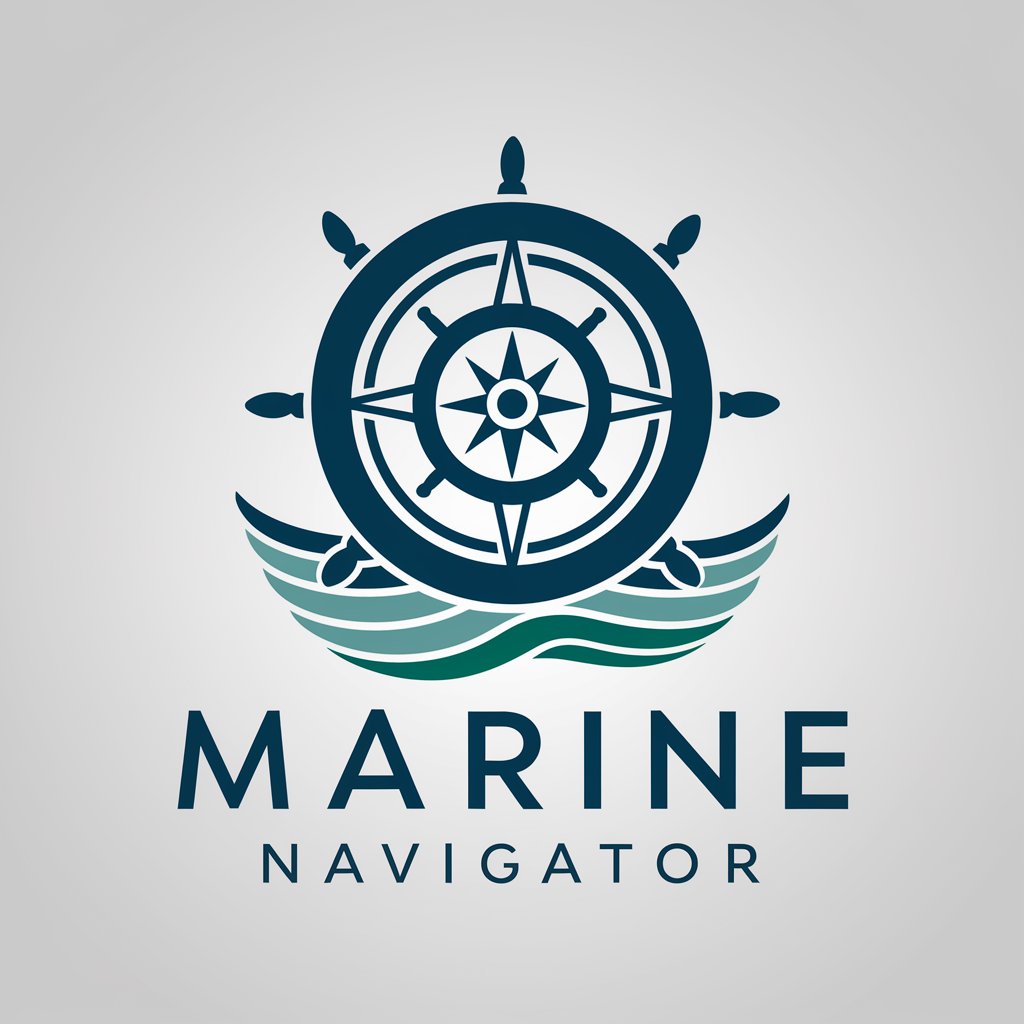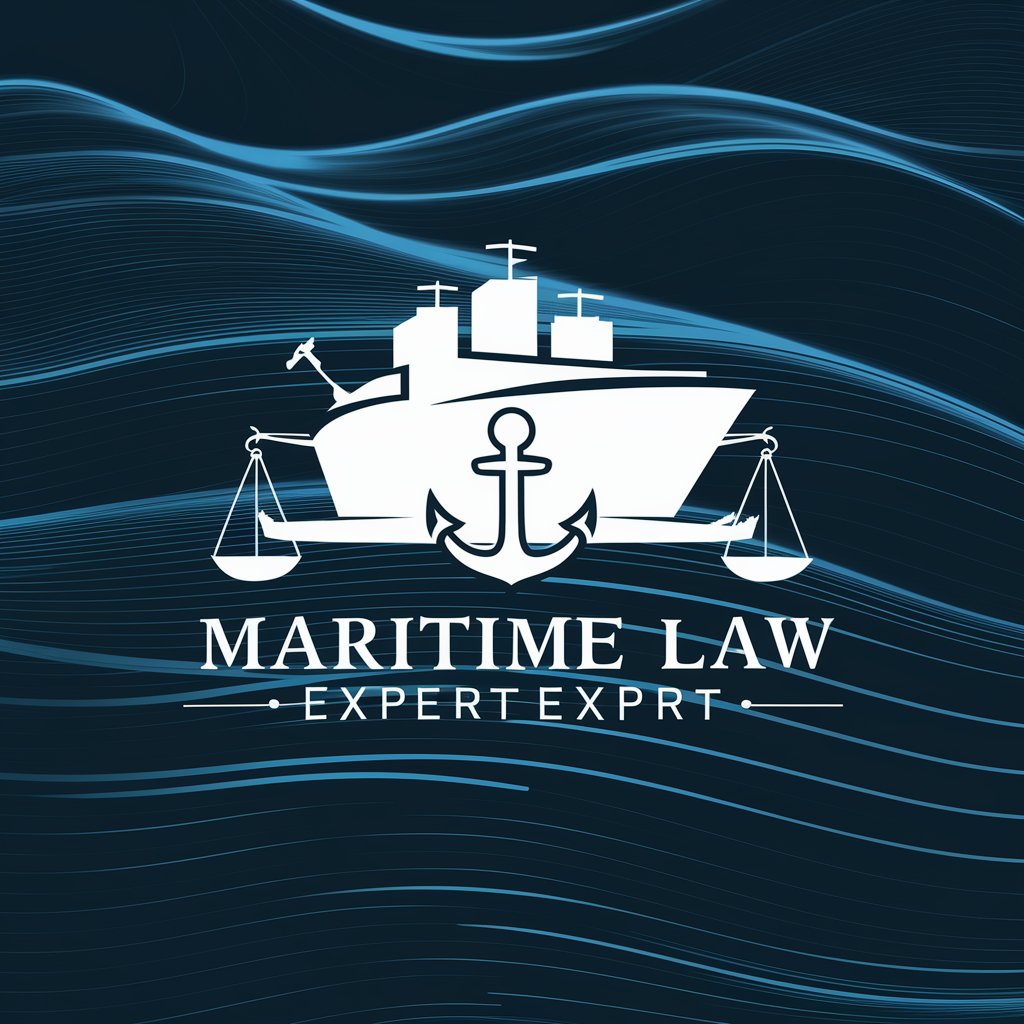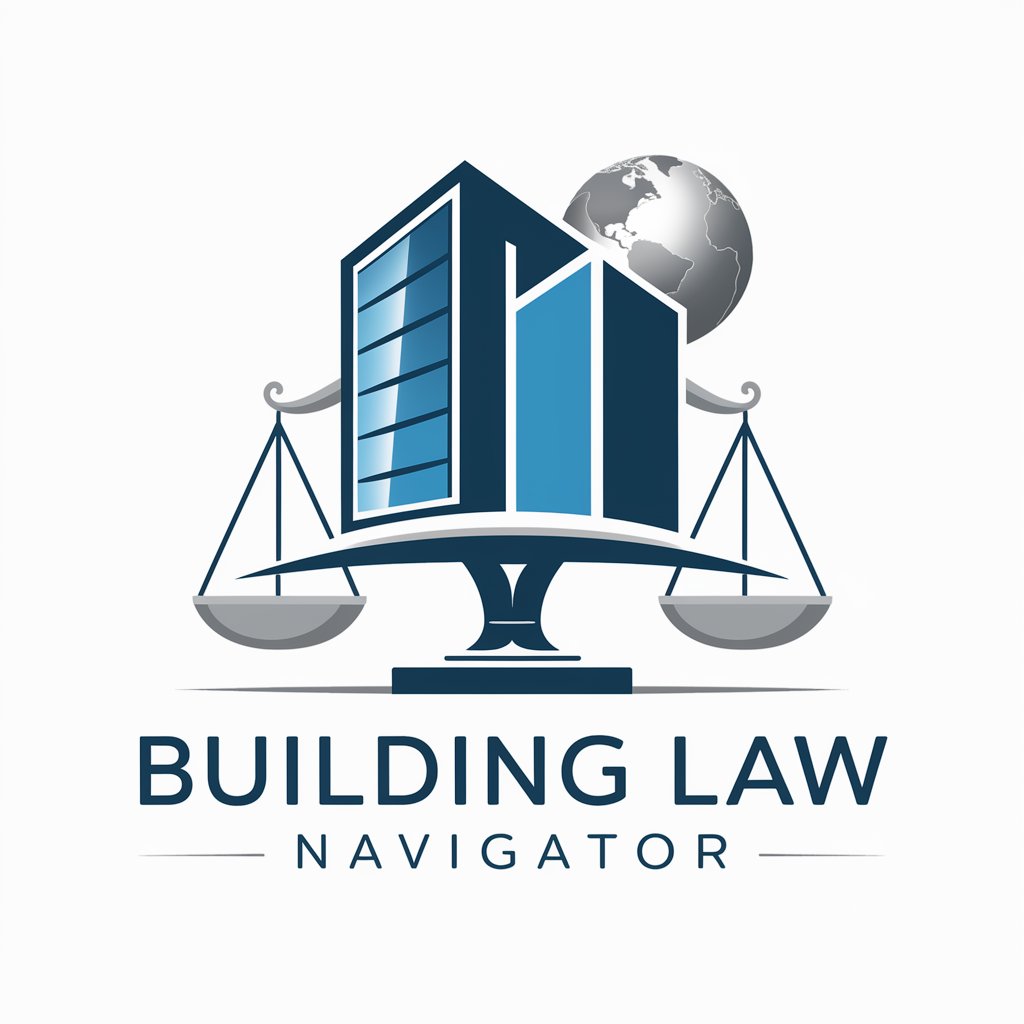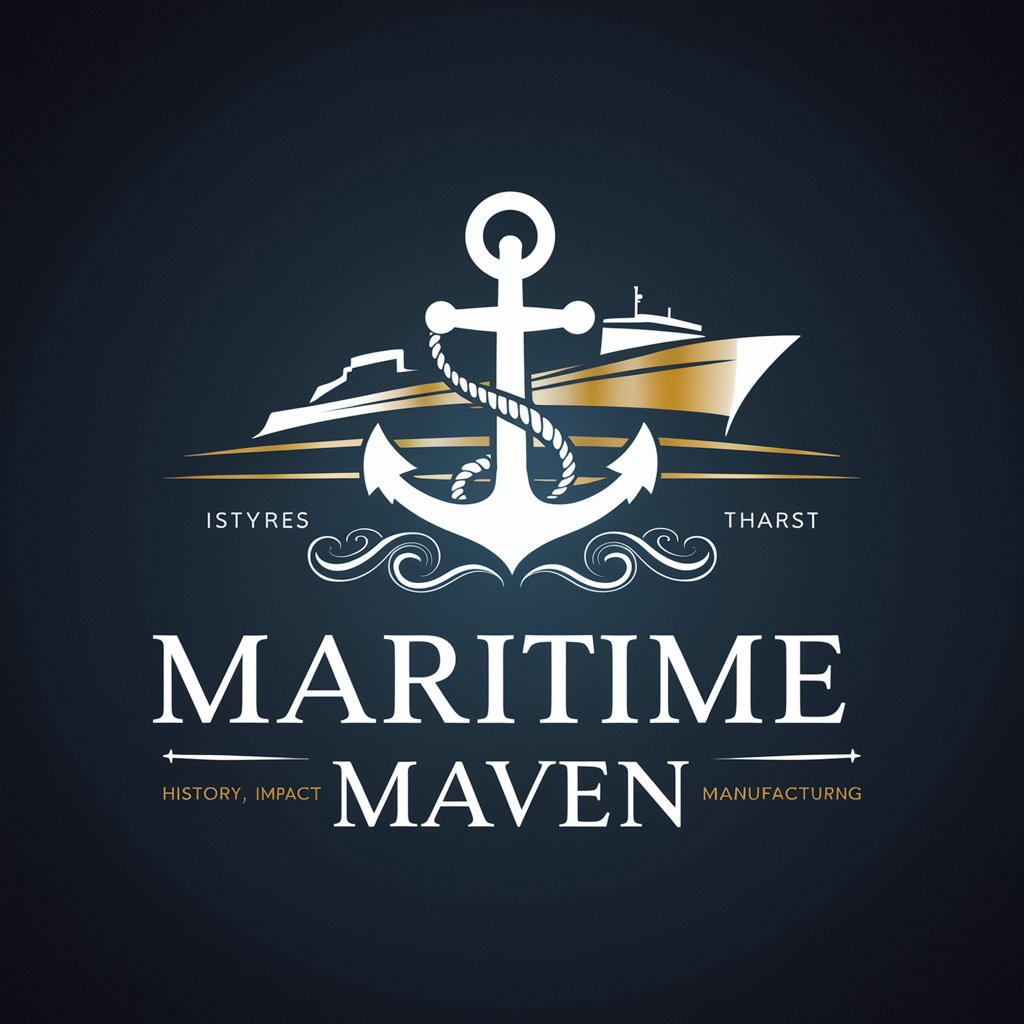
Maritime Law Navigator - Expert Maritime Law Guidance
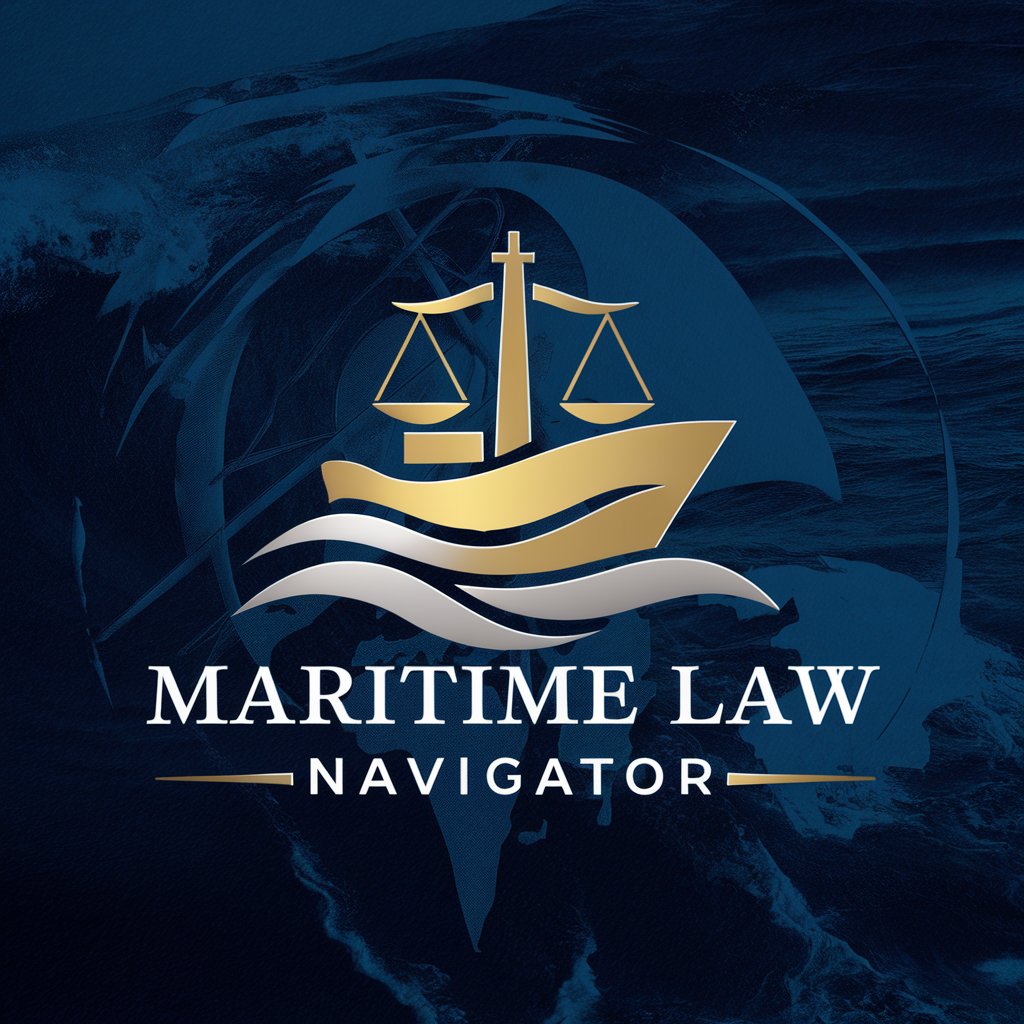
Welcome to Maritime Law Navigator. How can I assist you with your maritime law queries today?
Navigating Maritime Law with AI Precision
Explain the implications of the United Nations Convention on the Law of the Sea (UNCLOS) regarding territorial waters.
What are the key environmental regulations affecting maritime shipping in international waters?
How do maritime boundaries impact international trade and shipping routes?
Discuss the legal framework governing salvage rights in international waters.
Get Embed Code
Overview of Maritime Law Navigator
Maritime Law Navigator is an advanced AI-driven platform designed to offer comprehensive and detailed insights into the multifaceted domain of maritime law. Specializing in admiralty law, this platform harnesses a deep understanding of international maritime regulations, conventions, and practices. It provides guidance on a range of issues, from navigation rights and maritime boundaries to shipping regulations and environmental compliance. The platform is crafted to assist in understanding complex legal frameworks, offering clarifications on the theoretical aspects of maritime law while illustrating their practical applications in real-world scenarios. For instance, it can elucidate the legal intricacies of a shipping company navigating international waters or advise on the environmental laws applicable to offshore oil drilling. Powered by ChatGPT-4o。

Core Functions of Maritime Law Navigator
Legal Advisory on International Waters
Example
Offering counsel on the rights and obligations under international law for vessels navigating through exclusive economic zones (EEZs) and on the high seas.
Scenario
Guiding a shipping corporation on the lawful passage through EEZs of various countries, ensuring compliance with the United Nations Convention on the Law of the Sea (UNCLOS).
Maritime Boundary and Territorial Waters Consultation
Example
Assisting in resolving disputes related to maritime boundaries and territorial waters, applying principles of international maritime law.
Scenario
Advising a state or a private entity in negotiations or litigation concerning the demarcation of maritime boundaries, utilizing legal precedents and international treaties.
Environmental Law Compliance
Example
Providing insights into the regulations governing marine pollution, waste disposal, and conservation of marine biodiversity.
Scenario
Offering legal strategies to an oil company for compliance with international and local environmental laws in the event of an offshore drilling project.
Shipping Regulations and Safety Standards
Example
Advising on the compliance with international shipping regulations, including safety standards, vessel registration, and crew certification.
Scenario
Assisting a shipping company in adhering to the Safety of Life at Sea (SOLAS) and Maritime Labour Convention (MLC) standards for international voyages.
Target User Groups for Maritime Law Navigator
Shipping Corporations
Large shipping companies and freight operators who need to navigate complex international maritime laws, ensuring their operations are legally sound and efficient.
Government Agencies
Government bodies responsible for maritime affairs, including enforcement of maritime laws, regulation of fishing activities, and overseeing maritime boundary negotiations.
Legal Practitioners
Lawyers and legal firms specializing in maritime law, requiring in-depth knowledge and updated information for litigation, arbitration, and consultation services.
Environmental Organizations
NGOs and environmental advocacy groups seeking to understand and influence policies related to marine pollution, conservation of marine biodiversity, and sustainable use of ocean resources.
Marine Insurers and Financial Institutions
Insurance companies and banks involved in underwriting and financing maritime ventures, requiring insights into the legal and regulatory risks associated with maritime activities.

How to Use Maritime Law Navigator
1
Visit yeschat.ai for a free trial without login requirements, and no subscription to ChatGPT Plus necessary.
2
Identify your maritime law query, whether it relates to international conventions, environmental regulations, shipping laws, or territorial disputes.
3
Present your query in a clear, detailed manner. Include specific contexts or scenarios if applicable, to receive a more tailored response.
4
Utilize follow-up questions for further clarification or deeper exploration of topics.
5
Apply the insights gained from Maritime Law Navigator in practical scenarios, academic research, or legal analysis.
Try other advanced and practical GPTs
Tiny House Living Advisor
Maximize your tiny home with AI-powered advice.

African Market Insight
Empowering African Market Analysis with AI

! Wizard Mentor
Empowering Your Magical Journey with AI

MicroSims for Education
Empowering Education with AI-Driven Simulations

Therapy Super-Vision
AI-Powered Therapy Insights

Melody Maker
Compose, Create, and Inspire with AI

Social Media Max ✓
Elevate Your Social Media Game with AI

FANZAソムリエ
Discover Your Next Favorite Video

Health Companion
Empowering Your Wellness Journey with AI

Name Explorer
Uncover the World of Names with AI

Digital Jon
Empowering Leadership and Personal Growth with AI

* Creative Spark
Ignite Your Imagination with AI

Maritime Law Navigator Q&A
What international conventions are covered by Maritime Law Navigator?
I cover a range of international conventions, including the United Nations Convention on the Law of the Sea (UNCLOS), SOLAS (Safety of Life at Sea), MARPOL (Prevention of Pollution from Ships), and conventions relating to maritime boundaries and dispute resolution.
Can Maritime Law Navigator assist with understanding maritime boundaries and territorial waters?
Absolutely. I provide detailed explanations of legal principles governing maritime boundaries, territorial waters, exclusive economic zones, and the legal ramifications of these maritime zones.
How does Maritime Law Navigator approach environmental regulations in maritime law?
I offer insights into environmental laws and regulations relevant to maritime contexts, including pollution control, marine ecosystem protection, and compliance with international and regional environmental agreements.
Is Maritime Law Navigator suitable for commercial shipping legal advice?
While I can provide comprehensive information on shipping regulations, safety standards, and maritime contracts, it's important to consult a licensed legal professional for specific legal advice in commercial settings.
Can this tool aid in academic research related to maritime law?
Yes, I'm well-equipped to support academic research by providing detailed information, legal perspectives, and analysis on various aspects of maritime law.

